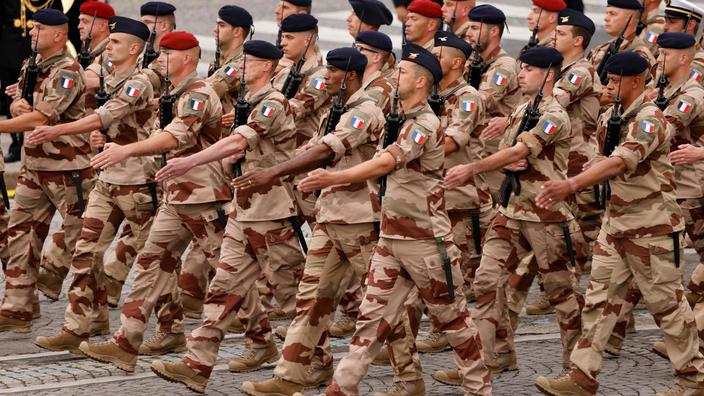This legal setback worries the army.
In a judgment published Thursday, the Court of Justice of the European Union has just partially found fault with France, which defended the singularity of the military status.
The European Union Working Time Directive may apply to certain activities of soldiers.
Members of the armed forces of the Member States cannot be "
excluded, in their entirety and permanently, from the scope of Directive 2003/88
", notes the CJEU in the communication made public Thursday.
The working time of the military could be limited.
To read also: Jean-Louis Borloo: "Let us not let European law threaten the cohesion of the French army!"
"
We were not successful
," admits one to the Ministry of the Armed Forces.
"
France asked for the possibility for the Member States to fully exclude the application of the directive
", we continue.
The unity of the military's statute, available "
at any time and in any place
", is opposed to "
the notion of dividing up working time
", one adds.
Tasks close to wage-earning
To understand what is at stake, we must go back to its origin. In 2014, a Slovenian non-commissioned officer performed “
an uninterrupted duty of seven days a month
” for which he asked to be paid overtime. The dispute having been brought before the courts, the Supreme Court of Slovenia then turns to the CJEU to decide whether or not the working time directive 2003/88 will apply to military activity. According to the Treaty on European Union, security matters fall within the competence of States. But appreciations differ between countries. France, Spain and Slovenia have defended before European jurisdiction the specificity of the military condition. Germany, for its part, accepts the distinction of activities.
The case is complex. But the file is serious enough to have been followed by the ministry, the staff and even the Elysee. "
I believe in the European way when I understand it,
" warned the head of state Emmanuel Macron on Tuesday evening, while defending military status. “What makes it possible to constantly ensure the safety of the French and Europeans is precisely this principle of military availability at all times and in all places. Would one imagine that
the nation's
ultima ratio
could not act for reasons related to working time? ”Minister Florence Parly explained to the Senate in February. "
The soldier cannot be an employee and a soldier, it is a single block
», Confides LREM deputy Jean-Michel Jacques, who would like to include this singularity in the constitution.
To read also: Jean-Éric Schoettl: "Army, borders, intelligence ... The European Union gives up protecting"
Ultimately, the CJEU recognizes that some military missions are the sole decision of states and their interests.
In operation or in the event of "
insurmountable constraints
", the armed forces may derogate from working time.
But the Court also enumerates certain tasks which are akin to an almost normal salary, in particular "
those which are linked to administration, maintenance, repair, health, maintenance of order or prosecution services. offenses
”.
They "
do not present, as such, any particularities which preclude any planning of working time which complies with the requirements imposed by Directive 2003/88, at least as long as these activities are not carried out within the framework of a military operation or during its immediate preparation
”, reads the communication from the CJEU.
Questioning the uniqueness of the status
By modifying the assessment of military working time, the stoppage risks unraveling the whole of the statute.
This indeed provides for compensation for the duties of the function.
“
The unity of the statute is a factor of cohesion.
The general and the soldier share the same principle of availability,
”the ministry said.
Thursday, the Ministry of the Armed Forces was cautious about the consequences of this legal standoff.
"
We are going to do a precise analysis
" of the judgment, they say.
No appeal is possible against the judgment of the CJEU.
If a dispute emerges in France, the Council of State could have its say.
At the ministry, we do not rule out an “
initiative
” to modify European legislation either.
“
We will respond to the law with the law
”.
Faced with this legal sword of Damocles, the ministry was trying to play down.
"
There is no social demand, on the contrary, the military are attached to the preservation of the uniqueness of their status
", we are assured.
But a complaint will suffice.




/cloudfront-eu-central-1.images.arcpublishing.com/prisa/OCXVGAGDFFE6NDRQIKWRK26LLU.jpg)




